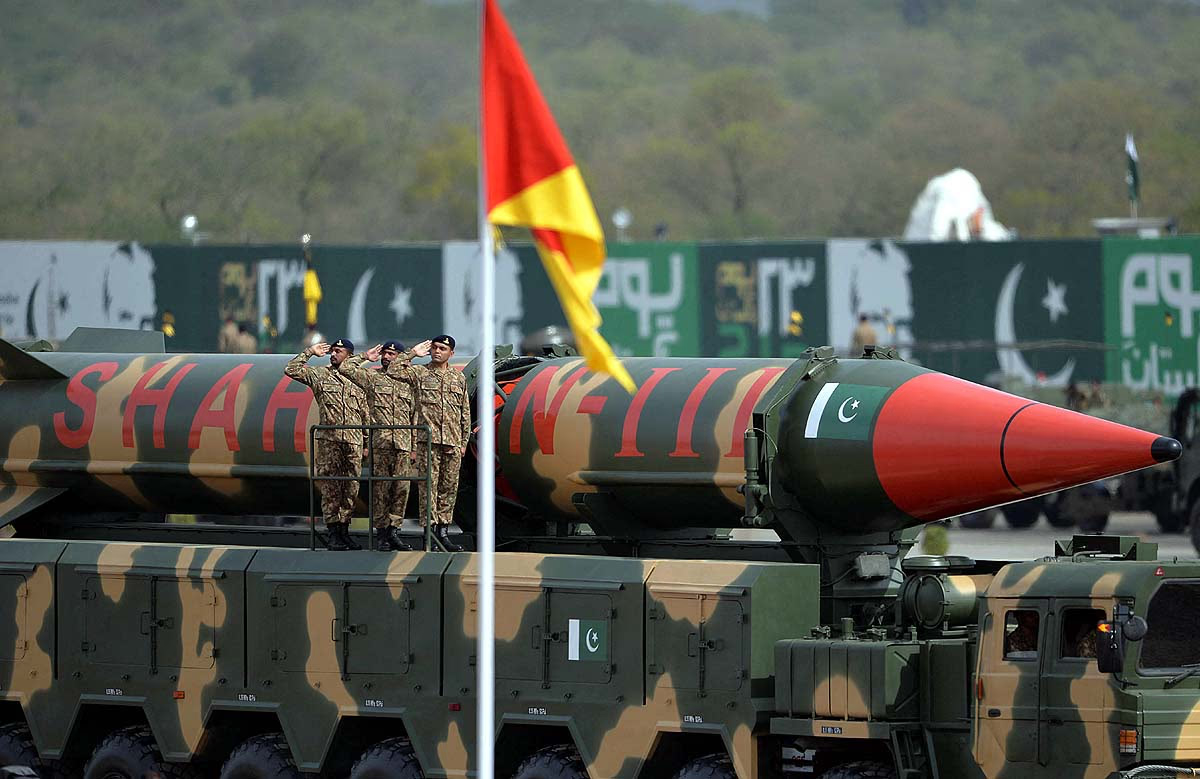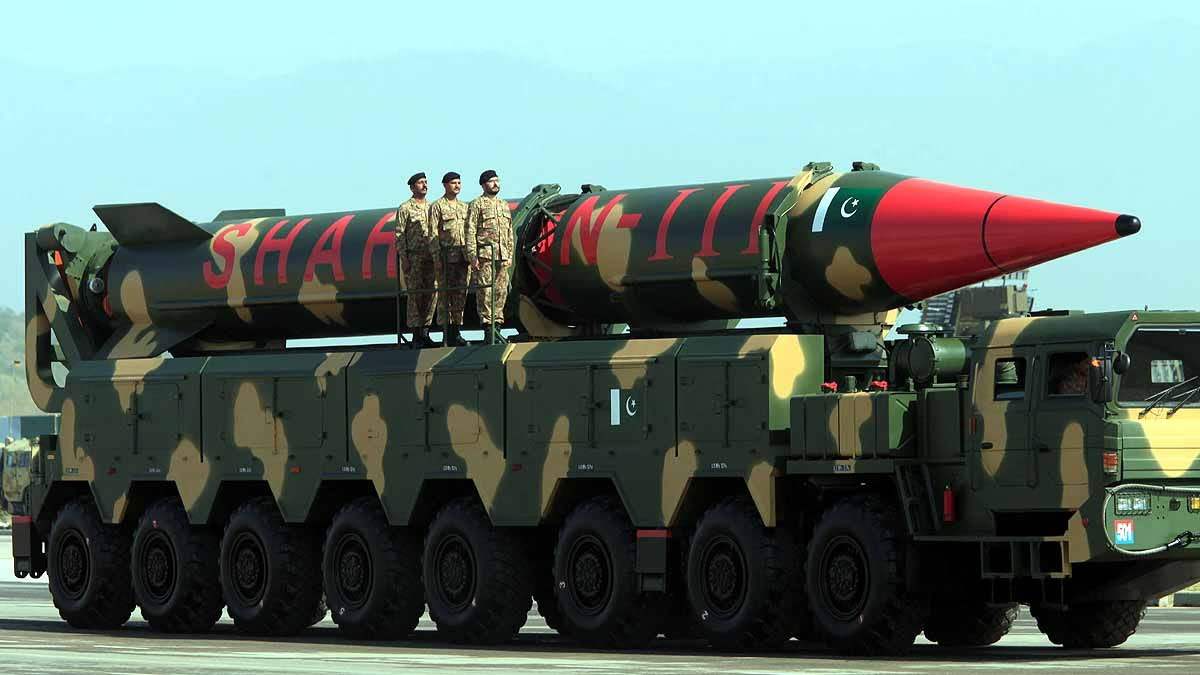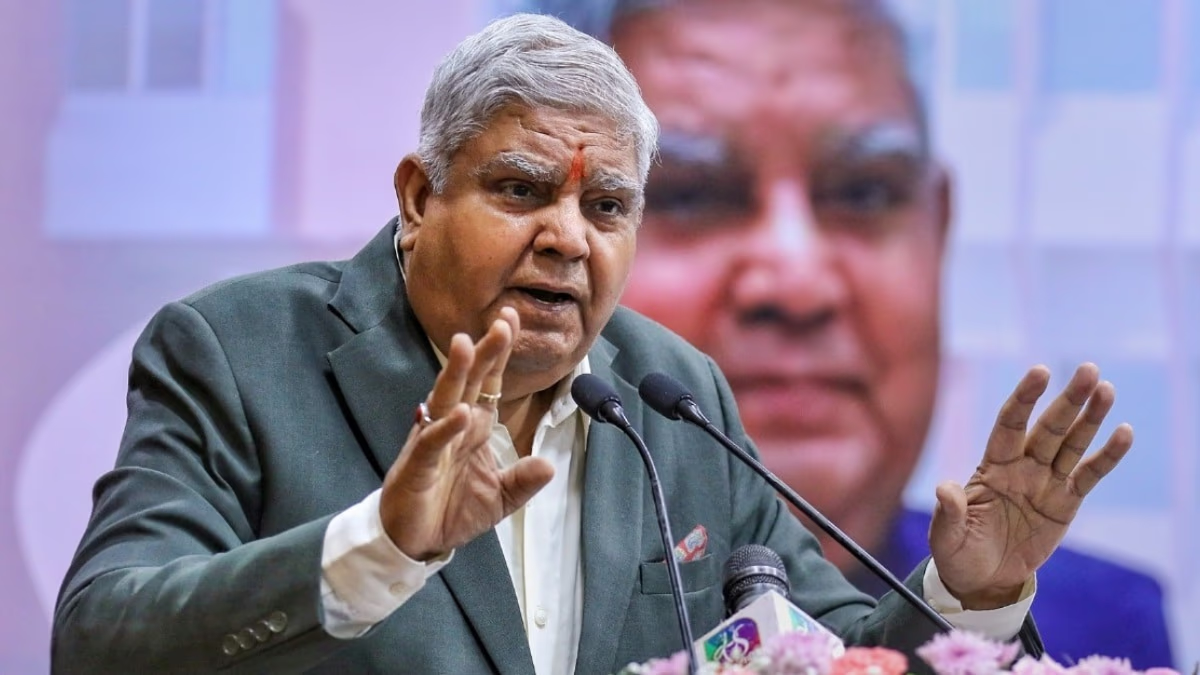Recently, the Pakistani military conducted a test of its Shaheen-3 missile, capable of carrying nuclear warheads, which ended in catastrophic failure. The missile veered off target, leading to an explosion near a nuclear facility in Dera Ghazi Khan, Punjab province.
Debris fell in the Dera Bugti district of Balochistan, alarmingly close to civilian settlements. This mishap not only questions Pakistan's military capabilities but also jeopardizes the safety of Balochistan's populace. Following the incident on July 22, 2025, the Pakistani Army ceased internet services in the area, restricted media, and advised residents to stay indoors.
Among Pakistan's most powerful arsenals, the Shaheen-3 is a surface-to-surface ballistic missile capable of striking up to 2750 kilometers. It can reach major Indian cities like Delhi, Mumbai, and Bangalore. Key features include...
Read More:

Source: aajtak
Nuclear Warhead Capability: It can carry nuclear warheads ranging from 20-25 to 300-500 kilotons.
Solid Fuel: It runs on solid fuel, enabling quicker launches.
Chinese Assistance: Developed with China's technical support since the 2000s.
Pakistan considers it a strategic defense tool, specifically in response to India's military prowess. Yet, consistent test failures undermine its reliability.
What Happened on July 22, 2025?
On this date, Pakistan attempted a Shaheen-3 test from the Rakhial area of Dera Ghazi Khan. The missile deviated from its course, crashing in the Matt region of Dera Bugti, a mere 500 meters from civilian settlements. Debris landed near the Loop Seherani Levy Station's Grepan Ravine, causing a massive explosion.
Explosion Sound: The blast was heard 20-50 kilometers away, impacting areas of Balochistan and Khyber Pakhtunkhwa.
Social Media Uproar: Videos showed people fleeing in fear; claims surfaced of the missile hitting the Dera Ghazi Khan nuclear facility and suggestions of it being a enemy drone attack.
Military Response: The Army immediately cut internet access, halted media coverage, and instructed civilians to remain indoors.
DG Khan Commissioner's spokesperson, Mazhar Shirani, suggested the noise might have been a sonic boom from a fighter jet, pending thorough investigation.
The Republic of Balochistan organization condemned the test, citing threats to local lives. Had debris misplaced slightly, hundreds could perish.
Read More:
Why is Dera Ghazi Khan Significant?
As Pakistan's largest nuclear center, Dera Ghazi Khan stores and processes uranium. Established by the Pakistan Atomic Energy Commission (PAEC) in 1970, the pilot plant processes 10,000 pounds of uranium daily.
The area is the focal point of Pakistan's nuclear weapons program. A missile strike there would spell disaster. Officials, however, claimed no damage occurred.
Previous Incidents
This wasn't Pakistan's first missile test failure...
October 2023, Dera Ghazi Khan: The Shaheen-3 test also failed. An explosion was felt 30-50 kilometers away, with speculative claims of hitting the nuclear facility dismisses as sonic boom by the government.
January 2021, Dera Bugti: A Shaheen-3 test failed, hitting civilian areas, damaging homes, and injuring people — seen as a test experiment mobilization by the Baloch Republican Party.
2020 Babar-II Missile: This land-sea launch-capable missile crashed during testing in Balochistan.
2022 Jamshoro: An unidentified missile landed in Jamshoro, Sindh, alleged to be a response to India's BrahMos incident.
These occurrences highlight deficiencies in Pakistan's missile technology.
Resentment in Balochistan
Republic of Balochistan and locals strongly criticized this trial. They claim...
Using Balochistan as a Testing Ground:
Repeated missile and nuclear tests jeopardize Balochistan's residents. Ruins of the 1998 Chagai nuclear tests are present in form of cancer and skin diseases.
Forced Evacuations:
Military evacuations precede tests in areas like Dera Bugti and Kahan. The motive, locals argue, involves plundering resources like gas and minerals.
Lack of Safety:
Prior missile tests lack civilian warnings, risking lives.
Baloch Republican Party spokesperson Sher Mohammad Bugti declared Balochistan as Pakistan's experimental ground, seeking UN and human rights bodies intervention.
Pakistan's Nuclear Program
Pakistan is one of the nine nuclear-armed states. Predicted estimates suggest possession of 170 nuclear arms by 2025, potentially reaching 200 by 2026. Its nuclear policy, 'Minimum Credible Deterrence', suggests use against neighbors like India.
Shaheen Series: With a range of 1250 to 2750 kilometers, Shaheen-3 caters specifically as a counter to India's Agni-III missile.
Chinese Subsidization: Pakistan’s nuclear and missile initiatives receive immense support from China.
Importance of Dera Ghazi Khan: This city acts as an epicenter for uranium processing and storage. Founded in the 1970s, produces 360 grams of weapons-grade plutonium annually.
What is the World's View?
India’s Perspective:
Despite no formal state announcement, discussions around Pakistan's vulnerability arose following Operation Sindoor (May 2025), after India retaliating on Pakistani airbases in response to Pahalgam terrorist incidents. Dera Ghazi Khan incidents fuel speculations on Pakistan's deficiencies.
US Concerns:
Following the 2023 DG Khan blast observations of an American nuclear sniffer plane sparked potential nuclear event discussions. The present silence conceals US monitoring of Pakistan's nuclear assets.
UN Appeals:
Baloch organizations targeted the UN and UN Security Council for curbing Pakistan's missile programs.
Pakistan's Stand
Pakistani authorities dismissed claims, describing the mishap as a non-terrorist event. The DG Khan Commissioner's statement attributing it to sonic-boom phenomena lacked clarity regarding the missile remnants found in Dera Bugti.
Despite sonic boom claims, what accounts for Shaheen debris arriving at Dera Bugti?
Raising internet and media restrictions remains unjustified.
Assurances of no nuclear facility threat lacked supplementary clarification.
The Interior Ministry is yet to release an official statement.
Implications for India
Pakistan's continual missile trial failures present operational uncertainties. The Shaheen-3's intended targeting of India exposes military fragility, albeit...
Nuclear Threats: A disaster akin to DG Khan could inflict nuclear challenges on India.
Balochistan's Dissatisfaction: Rising unrest risks regional instability, potentially impacting India-Pakistan border relations.
Operation Sindoor: Post-May 2025, Indian strikes questioned Pakistan's retort potential.




